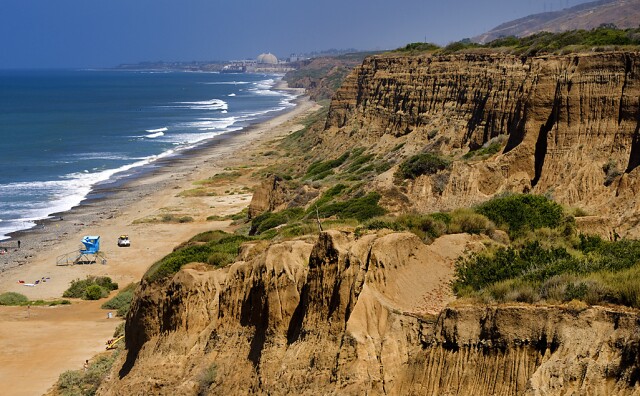A Styrofoam Ban Is Now In Effect In The City Of LA, But How Much Bite Would It Really Have?

A ban on the sale or distribution of what’s known as expanded polystyrene took effect this week in the city of Los Angeles. The common trade name is Styrofoam, which is a type of plastic.
L.A. first approved the ban in 2022. It took effect last year for large food or beverage facilities and retail establishments with more than 26 employees.
On Tuesday, it expanded to all other facilities, even though Styrofoam products could still be purchased online provided that they're shipped from somewhere outside of L.A. The ban is part of the city’s march toward a “zero-waste” L.A.
A victory for environmentalists
Environmentalists, who lobbied for a polystyrene ban for more than a decade, hailed its final implementation.
“It's a huge problem in the environment,” said Emily Parker, coastal and marine scientist with Heal the Bay and co-chair of the Reusable L.A. Coalition. “Because it breaks down into small pieces so quickly, it's incredibly difficult to clean.”
Craig Cadwallader of the Surfrider Foundation added that wildlife often consume the tiny pieces of white polystyrene “thinking they are fish eggs.”
Polystyrene is also unsafe for humans, he said. “It leaches chemicals — styrene and benzene — into food,” he said.
Cadwallader said he hopes other cities that have been reluctant to impose a ban will follow L.A.’s lead.
“What happens in Los Angeles is watched worldwide,” he said.
L.A. County already enacted a similar ban in unincorporated areas last year.
Details of the ban
The wide ranging ordinance prohibits businesses from distributing, offering, providing, renting, or selling any polystyrene product. It also bans the use of polystyrene in shipping or packing material.
Chloe Brown with Californians Against Waste said the L.A. ordinance is important because it covers a large number of restaurants that use Styrofoam for pack to-go items.
“We’re really excited to see it expand,” Brown said. The city's many restaurants, including mom and pops, are expected to be affected.
Under the ordinance, retail outlets are also prohibited from selling polystyrene materials, including plates, cups and coolers. But there are a number of exemptions, including craft supplies and packaging or containers for drugs and medical devices.
Parker said the market offers many alternative materials to polystyrene, including paper, fiber-based materials, and tinfoil.
“This should not impact businesses in a big way,” Parker said.
The California Restaurant Association has lobbied against such bans, arguing the alternatives to polystyrene cost more. The association sued the city of San Diego, successfully delaying implementation of its ban.
The association did not provide comment on the L.A. ordinance.
The problem with Styrofoam
Polystyrene is used extensively in food and beverage and packaging industries because the material is lightweight, moisture-resistant, and has high shock absorbency. But it's highly problematic, according to the Department of Sanitation:
- It's not accepted in the blue bin for recycling, or the green bin for composting in L.A.
- It does not biodegrade
- It poses a risk to wildlife
- It can easily blow out of open garbage cans and trucks because it is so lightweight
- It can leach toxic chemicals into the environment when landfilled and has been classified as a possible human carcinogen
The larger push toward 'zero waste'
L.A. is looking at a wide range of other measures to reach its zero waste goal, including a Comprehensive Plastic Reduction Program.
Among the proposals included in the program: one that would require restaurants to use reusable dishes for dine-in customers.
“If you’re going to sit there and eat, you should be given something reusable that gets used again and again,” Parker said. “This is something that is most important for fast-casual establishments.”
Parker called it “low-hanging fruit” where the city could make a lot of progress as far as reducing the amount of single-use plastics.
The Los Angeles City Council would need to approve such a proposal.
-
Sandhill cranes are returning to the Lake Tahoe basin after a century long hiatus in what many say is a conservation success story.
-
Jackie’s partner, Shadow, refuses to abandon their unviable eggs, despite her attempts to nudge him along.
-
We do have some of the same types of buildings here.
-
Switching to an electric heat pump water heater can save you money and help the state avoid power outages.
-
The state's parks department is working with stakeholders, including the military, to rebuild the San Onofre road, but no timeline has been given.
-
Built in 1951, the glass-walled chapel is one of L.A.’s few national historic landmarks. This isn’t the first time it has been damaged by landslides.






